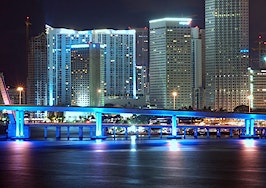- International real estate attorney Edward Mermelstein says foreign buyers are shifting focus.
- Due to the slump in crude oil prices, foreign investors are changing their strategies.
- While the US is still considered a far safer place to invest, international buyers are looking for income-producing properties.
The slide in global oil prices has set up a dynamic that has changed the goal of foreign real estate investors who buy in the US.
 Edward Mermelstein, managing partner of RheemBell & Mermelstein, LLC, has represented high-net-worth international investors, developers, and a range of financial institutions in private equity, commercial, and residential real estate transactions for the past 20 years.
Edward Mermelstein, managing partner of RheemBell & Mermelstein, LLC, has represented high-net-worth international investors, developers, and a range of financial institutions in private equity, commercial, and residential real estate transactions for the past 20 years.
He says that investors from countries such as Russia, Kazakhstan, Azerbaijan and Saudi Arabia are changing their strategies when looking at investing in U.S. properties. He sees the same behavior in investors from Mexico and Central America, too.
‘The high-end residential buildings that depend on wealthy overseas buyers have seen a substantial drop off in a short period of time,” Mermelstein said.
There were not a large number of buildings that are affected, he added. In New York, those penthouses and whole floors would fetch $4,000 a square foot; in Miami, they go for $1,500 to $2,000 per.
“It’s those vanity buys that are not now being made,” he said. “Those $50 to $100 million penthouses.”
“Instead, the international wealthy client is now focusing on commercial space, because those properties are income-producing for the owners.”
Political turmoil and the health of the commodities markets leads buyers to US soil. “The U.S. is a politically and economically stable place,” Mermelstein said. “At home for these buyers, there is economic instability, or worse.”

Oil wells image via Shutterstock.
He thinks that the steep drop in the price of oil in globally isn’t something that will reverse itself anytime soon, adding that cooperation that is now lacking among oil-producing nations is the missing element.
“Similarly in our own markets six or seven years ago, when there was a big downturn, big investors looked to China for greater returns.” That tide has turned.
But speaking of politics, the fact that 2016 is an election year in the U.S. is weighing on the markets, but not heavily.
“An election year adds a layer of uncertainty, definitely. The whole world is waiting to see the impact of a new administration.”
He adds that that uncertainty detracts a bit from the luster of the U.S, but doesn’t stop this from being the go-to place for investment.
On the U.S. side of the oil equation, Mermelstein said that the impact of dropping crude prices is hitting some places harder than others. He mentions areas involved in typical oil extraction and in fracking – states like Texas, North Dakota, and Pennsylvania among them.
“Dallas and Houston have had a softer landing, but the impacts are being felt,” he said.
What’s helping those parts of the south’s oil country is the diversification of the economy.
“It’s the same as New York right now. The diverse economy prevents the local economy from collapsing as dramatically. The lows aren’t as low, and the highs aren’t as high,” he says.
“Miami, though, does collapse more dramatically. Its economy is travel and tourism-dependent, so it tends to grown and fall steeply,” he said. “But it’s nowhere near the value of New York.”









